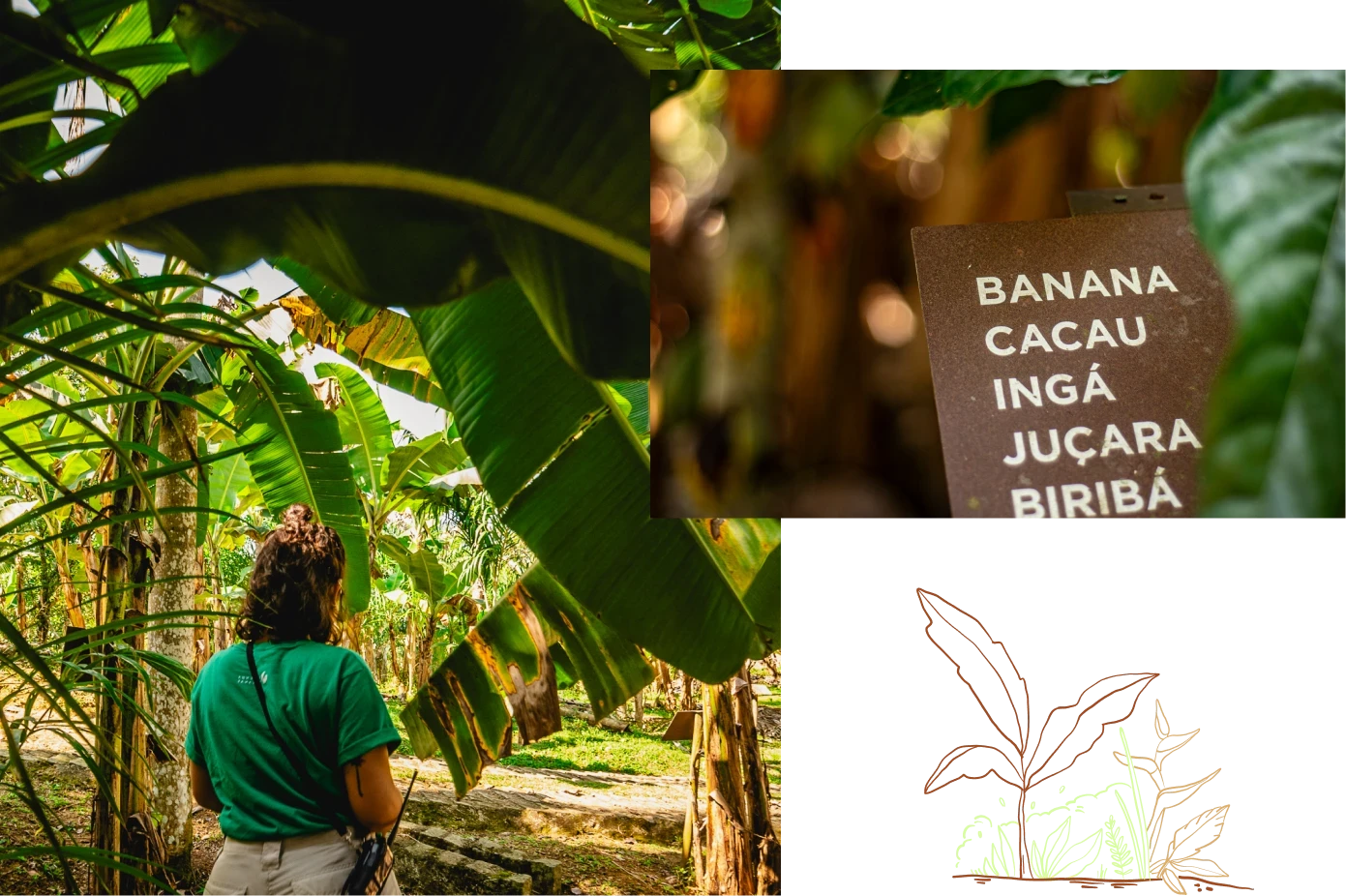


An agroforestry production system (AFS) is a form of food production inspired by ecological processes in the forest. This system promotes collaboration between different plant species, which act together to increase soil fertility, for example through leaf and branch fall, or to increase humidity thanks to the partial shading formed.
Because they are based on natural processes and avoid the use of chemical fertilizers and pesticides, AFS have a few advantages over monocultures (traditional plantations), like soil fertility restoration, water usage reduction, higher defenses against prague and healthier food, for example.


In addition to improving the quality of life for those who consume and produce food, AFS promote biodiversity conservation and innumerous benefits for the local fauna and flora.
Our first AFS was created in 2015 and occupies an area of 4 hectares, mixing many native species with fruit trees from different regions. There are more than 60 different foods that go ‘from farm to table’.


Fazenda Bananal's vegetable garden covers an area of 5,000m² where we produce around 60 different products throughout the year without the use of pesticides or chemical fertilizers, including leafy vegetables, fruit and spices. The production is picked daily, always in the morning, so that its quality and flavour are maintained.
In the orchard, we cultivate different varieties of oranges, lemons and ponkan - also without added chemicals. While the citrus trees are growing, they allow the production of manioc, corn, beans, broccoli, cauliflower and cabbage, as a cooperative effort to make better use of the soil and promote local biodiversity.

Visits to Fazenda Bananal are available by appointment only